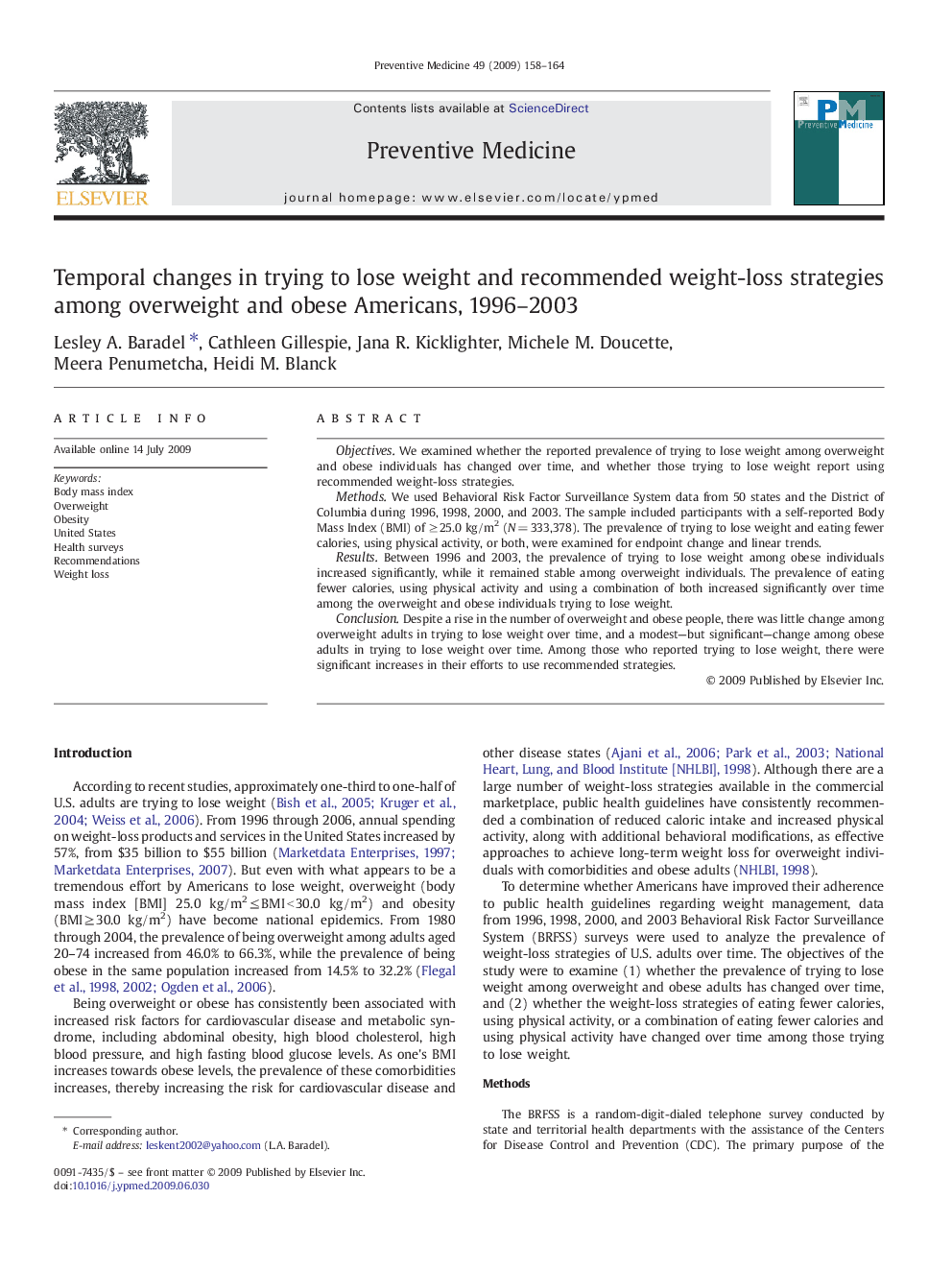| Article ID | Journal | Published Year | Pages | File Type |
|---|---|---|---|---|
| 3101449 | Preventive Medicine | 2009 | 7 Pages |
ObjectivesWe examined whether the reported prevalence of trying to lose weight among overweight and obese individuals has changed over time, and whether those trying to lose weight report using recommended weight-loss strategies.MethodsWe used Behavioral Risk Factor Surveillance System data from 50 states and the District of Columbia during 1996, 1998, 2000, and 2003. The sample included participants with a self-reported Body Mass Index (BMI) of ≥ 25.0 kg/m2 (N = 333,378). The prevalence of trying to lose weight and eating fewer calories, using physical activity, or both, were examined for endpoint change and linear trends.ResultsBetween 1996 and 2003, the prevalence of trying to lose weight among obese individuals increased significantly, while it remained stable among overweight individuals. The prevalence of eating fewer calories, using physical activity and using a combination of both increased significantly over time among the overweight and obese individuals trying to lose weight.ConclusionDespite a rise in the number of overweight and obese people, there was little change among overweight adults in trying to lose weight over time, and a modest—but significant—change among obese adults in trying to lose weight over time. Among those who reported trying to lose weight, there were significant increases in their efforts to use recommended strategies.
